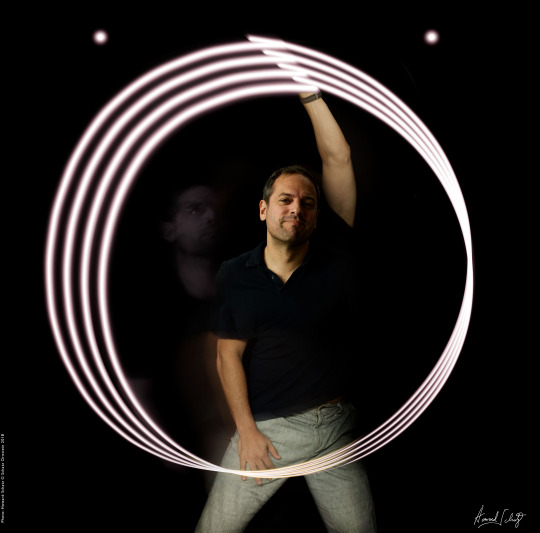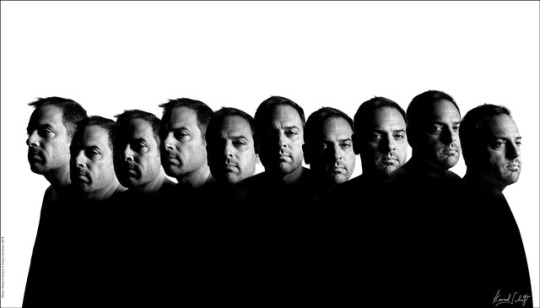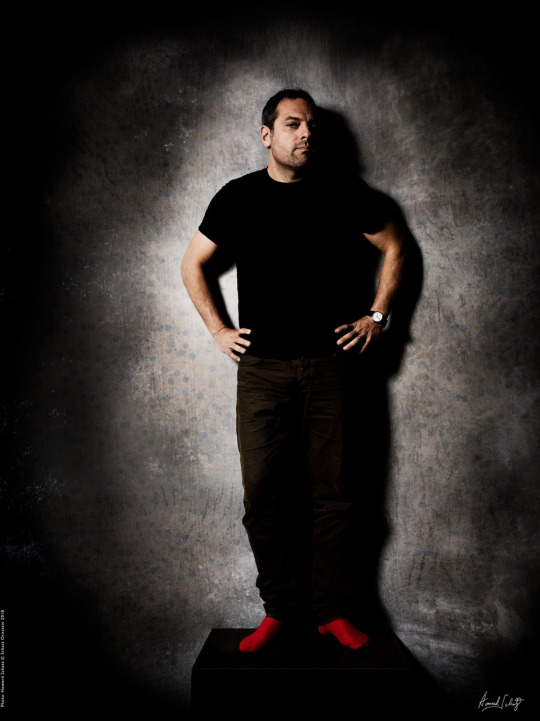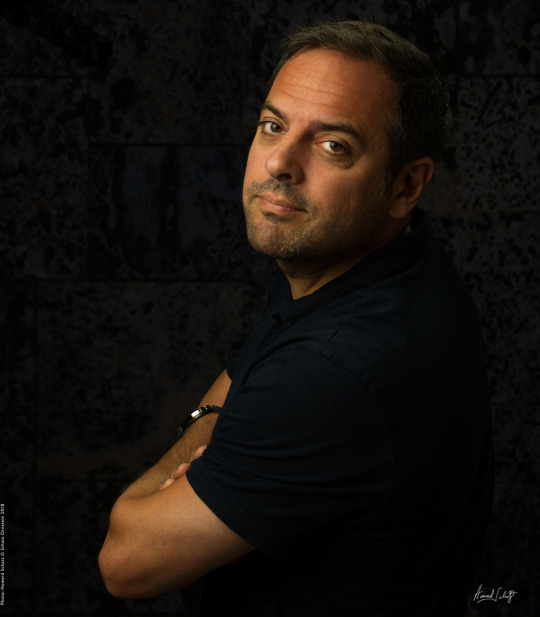
My project of inviting remarkable people in all walks of life to my studio has become very gratifying, interesting and even more fun as it progresses. My most recent visitor/subject was Mark Fitzloff, the creator of some of the most important and successful advertising campaigns–ever. He is a “Mad Man” made marvelously modern. His new company is wonderfully called, “Opinionated.”
Fitzloff began his career in the mid 90’s at Portland, Oregon-based Wieden+Kennedy. As a copywriter, he did award-winning work for Nike. Later, while working on Coca-Cola, he found his true talent: Breathing fresh life into iconic American brands. He extended that skill to Old Spice, creating a campaign that has gone on to be one of the funniest and most enduring in advertising.
In 2008, Mark was named Executive Creative Director of Wieden’s largest office – its Portland headquarters. He became a partner in the firm soon after. Under Mark’s leadership, the Portland office was considered by many the world’s most creative ad agency. In 2013, Mark took charge as Global Executive Creative Director of Wieden+Kennedy, responsible for 1,600 employees, 8 offices, and creative work around the world. In his final year at the helm, the agency had its best financial year on record.
Mark founded Opinionated, his own agency based in Portland, in 2017.

What follows is an edited version of the interview I did with Mark during the portrait shoot.
HS: Advertising depends heavily on visuals. As a copywriter, initially -– a professional wordsmith – how did you achieve your sensibility for visual art?
MF: It came from being partnered with really talented art directors and being around photographers and film makers. And, marrying that with what I felt to be an understanding of how a story worked. And understanding, too, what made things interesting, unusual or noticeable. The wonderful thing about how creative advertising works is that you’re always working in partnership; I’m a strong believer in the power of a partnership with others. The more I respect that power, the better my work is.
I think at the core collaborative creative team work is vital, so I willingly took a back seat to my art director partners. It was a combination of my conceptual power and their design sense that produced work that resonated. As you grow comfortable in your own creative skills you become more comfortable making space for others. I learned over time that my solution might not be the best; that someone who was more of a lateral thinker, more of an abstract thinker, had something that I admired that I couldn’t do myself alone. Once you have a few of those experiences, you get the message and you understand.
HS: When you were the Global Executive Creative Director at Wieden+Kennedy with 1,600 employees, how did you ever have time for creativity?
MF: There were parts of that job that were externally focused, managing clients and that sort of thing. But I cannot lie to myself, those are just horrible parts of the business and they’re certainly not creative. But making a space where people feel safe and empowered and have a voice, to take creative risk, to feel confident enough to listen and to make space for partnership – making a place for creative people was in itself a creative pursuit.
Creativity is a lot about empathy, being curious about how other people are thinking. And it’s also about selfishness. I’m a big fan of the positive influence of selfishness in creative work.
HS: Selfishness?
MF: When you start as a copywriter or an art director, you are licensed to be completely selfish; your only goal is your own outlet and this piece of work you’re passionate about. And you don’t really need to trouble yourself with the creative opinions of anyone other than you and your partner.
You can listen to collaborators but care only about your own work, even though you work inside a big company and on behalf of a big client. Then, as you become a creative director you have to find a way to be utterly selfish for a small group of creative people so that you are constantly working on behalf of their work, blocking and tackling and fighting for it.
Then, as you grow through the ranks, your selfishness has to be more inclusive, but it’s just a way of understanding and accepting the creative motivation in others which, frankly, is selfishness – trying to give them a different perspective as they grow in responsibility.

HS: There is a tyranny of consumer research which sometimes throws a project toward one goal but interferes with ideas and possibilities.
MF: I’ll be honest with you, I wish we were still living in a time when all we had to worry about was too much consumer research; because actually we now live in a tyranny of technology. We actually have machines that verify, on some level, statistical averages; the data is surpassing the creative process entirely because every time you go on the internet and see advertising these days it’s produced by an algorithm rather than by a creative opinion.
But data can’t create drastic change. What is still in the wheelhouse of creativity is the power to make some massive change, because data still only works on what’s already known, and it predicts based on that. So real, transformative change requires some sort of spark out of left field.
HS: How do you argue with a client who comes in with all this data when in fact you have an idea that you feel will work, from experience? How do you handle that?
MF: I wish there were an easy answer to that, but mostly it’s how you argue anything, which is to understand the opposing point of view so deeply that you can debate intelligently. Gone are the days of the creative director hopping up on the table and throwing a temper tantrum. That doesn’t work anymore.
HS: Maybe it’s innate, but you seem to have chosen a style of kindness.
MF: Very few clients would recognize that in me. I named my company “Opinionated,“ but I try to be as agreeable and cooperative as I possibly can be about literally every single thing, except for the work. It’s all about the work, it’s all leading up to that. In every conversation I try to lay groundwork so that those discussions can go successfully. But if they don’t, then I’m very Jekyll and Hyde.
HS: How are things different in your new company, “Opinionated,” for your life, for the way you work?
MF: I’m doing all the things I did at every stage of my career. Most important, I’m creating again.
Since I’ve been managing for so long, I kind of convinced myself that I was a good creative but that I was a much better manager; I just resigned myself to that. But re-engaging in the act of creativity, in writing copy, in sitting with my art director and coming up with ideas and then going on shoots and managing shoots, reminded me that I’m really good. And I’d forgotten how much I just frikkin love it.

MF: It’s like you have a creative problem and then it hits you like lightning: “Oh my god, I’ve got it, I know what we’re doing.” You’re one hundred percent in the present, you’re not worried about the future, you’re not caring about what’s happened in the past, you’re right there and it’s not work, it is like the ultimate high of play. I’m doing that again, which is awesome.